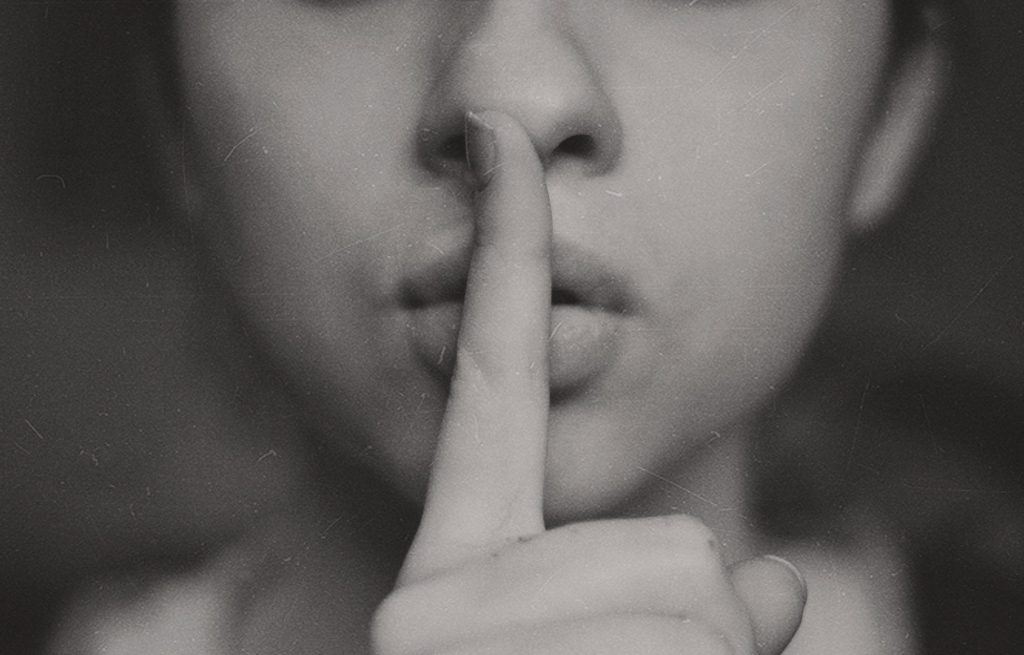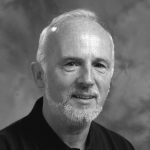When feelings about other people bubble up inside us, where have those feelings really come from? Consultant clinical psychologist Dr. Tony Humphreys discusses how what we say about others says volumes about ourselves, and why ownership of responsibility in situations of difficulty or conflict offers a unique chance for growth in interpersonal relationships.

An unspoken secret is this: what arises in me is about me. Any attempt to voice that truth can be responded to with considerable hostility. Of course, such hostility is a revelation of the inner world of the person who is being aggressive.
Whether we like it or not, we continually reveal our interior world with every feeling, thought, word, action and non-verbal behaviour we take. Level of eye contact, facial expression, tone of voice, body posture and seemingly involuntary physical movements such as thumb-twirling, leg-jumping, face twitches, biting one’s lip and other such actions are all manifestations of our inner world. When we begin to examine the manifestations of our interiority non-judgementally and with a caring curiosity, we enter the exciting process of exploring our relationship with Self, discovering what new choices and actions are being called for. By progressing towards a consciousness of what lies hidden, self-realisation and authenticity become possible.
What is it that makes it so difficult to own what arises in me as being about me – be it a dream, feeling, thought, image, action, word, non-verbal response or illness? The answer to that question lies in the answer to another: has my life to date been a series of safe moments with a few dangerous ones, or a series of dangerous moments with a few safe ones? If the former was the case, it is more likely that you're in a place where you are able to own what arises in you as being about you. However, if your experience was the latter, owning and accepting responsibility for what arises in and from you could prove highly threatening.
When I
own what arises in me, I will speak and act from an ‘I’ place, a place of responsibility and self-realisation. When I disown what arises, I tend to speak from a ‘you’ or ‘they’ place and blame another – the system, the world, even God – for how my life is. Equally, I may introject and blame myself for all that is happening in my inner and outer worlds, thereby not putting the spotlight on others at all. There is a great wisdom – though not a consciousness – in such unconsciously-formed projections and introjections. The logic goes thus: if I shine the spotlight of blame and responsibility onto others or myself, I have thereby cleverly exonerated myself from being criticised and judged by others. These unconscious projections and introjections can only be resolved when a person finds enough help and support to enable him or her to find the inner stronghold, that inner authority, in which nobody – others or self - can demean, lessen, threaten or reject him or her in any way. This is the first step in being able to hold and respect everything that arises in us.
Unless political and corporate leaders accept responsibility for their disastrous political, emotional and social practices, it is unlikely that anything will be learned from the present crisis. Experience has shown us time after time that we find it difficult to learn from history. To own our mistakes, our fears, our vulnerabilities, our aggression, greed, avarice and rigidities may appear to be a bridge too far for many people. However, it is a bridge that each of us needs to cross. It is in each person taking responsibility to understand themselves and reflect on what's going on in one’s inner and outer lives that real progress can be made within society. We cannot continue to distract attention onto institutions, organisations and systems that do not have minds or hearts. It is individuals who need to make decisions – not systems – and it is only individuals that can choose to make different decisions. In this way, it becomes possible for each of us to affect the world at large by bringing an internal authority and authenticity to the people we interact with and to the social, educational, health, leisure, work and spiritual systems we live in.
All very well to say, but a major challenge to take on! So, how can this mature process be encouraged and supported? The future of society never lies with children – the responsibility always lies with adults. It is adults who need to find the safety and support, either in interpersonal relationships or perhaps by attending a psychotherapist or relationship mentor to reflect on how each individual relates to Self, to others and to the world. Whether we like it or not, we continually spill the beans on our interior world with every thought, word, feeling and action. Such reflection and contemplation will result in radically different ways in how you exist within this world, a radicalism that is direly needed in the world today.
It is not optional for me to own what arises in me as being about me, it is an urgent responsibility. It is critical that leaders (in particular), parents, teachers, politicians, bankers, psychologists, social workers, managers, scientists, doctors and psychiatrists find the safe holding to take up the challenge of knowing Self. In turn, they can create the emotional, social and intellectual safety for children to retain the authentic expression that they so powerfully and eagerly start out with, and pave a safe path to authenticity in adulthood.
 Find out more
Find out more
Dr. Tony Humphreys is a clinical psychologist, author, national and international speaker. He began his career as a clinical psychologist and since 1990 has been working in private practice in Ireland, working with array of individuals and groups. Dr. Helen Ruddle is a Psychologist, Counsellor and Author. Presently her work primarily is with individuals in private practice along with University-level programme development and authorship of books. Their new book Breakthrough: The Power of the Interrupted Relationship provides the reader with the tools to curate a positive relationship with themselves and any future others.

 Find out more
Find out more